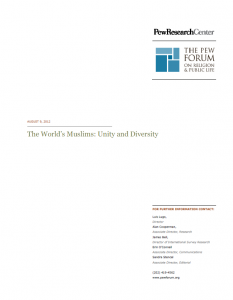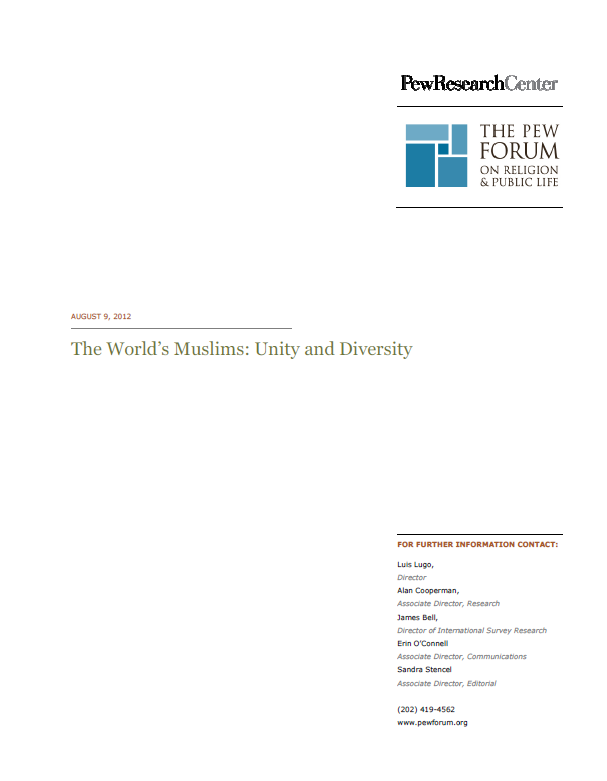 The world’s 1.6 billion Muslims are united in their belief in God and the Prophet Muhammad and are bound together by such religious practices as fasting during the holy month of Ramadan and almsgiving to assist people in need. But they have widely differing views about many other aspects of their faith, including how important religion is to their lives, who counts as a Muslim and what practices are acceptable in Islam, according to a worldwide survey by the Pew Research Center’s Forum on Religion & Public Life.
The world’s 1.6 billion Muslims are united in their belief in God and the Prophet Muhammad and are bound together by such religious practices as fasting during the holy month of Ramadan and almsgiving to assist people in need. But they have widely differing views about many other aspects of their faith, including how important religion is to their lives, who counts as a Muslim and what practices are acceptable in Islam, according to a worldwide survey by the Pew Research Center’s Forum on Religion & Public Life.
The survey, which involved more than 38,000 face-to-face interviews in over 80 languages, finds that in addition to the widespread conviction that there is only one God and that Muhammad is His Prophet, large percentages of Muslims around the world share other articles of faith, including belief in angels, heaven, hell and fate (or predestination). While there is broad agreement on the core tenets of Islam, however, Muslims across the 39 countries and territories surveyed differ significantly in their levels of religious commitment, openness to multiple interpretations of their faith and acceptance of various sects and movements.
Some of these differences are apparent at a regional level. For example, at least eight-in-ten Muslims in every country surveyed in sub-Saharan Africa, Southeast Asia and South Asia say that religion is very important in their lives. Across the Middle East and North Africa, roughly six-in-ten or more say the same. And in the United States, a 2011 Pew Research Center survey found that nearly seven-in-ten Muslims (69%) say religion is very important to them. (For more comparisons with U.S. Muslims, see Appendix A.) But religion plays a much less central role for some Muslims, particularly in nations that only recently have emerged from communism. No more than half of those surveyed in Russia, the Balkans and the former Soviet republics of Central Asia say religion is very important in their lives. The one exception across this broad swath of Eastern Europe, Southern Europe and Central Asia is Turkey, which never came under communist rule; fully two-thirds of Turkish Muslims (67%) say religion is very important to them.
Generational differences are also apparent. Across the Middle East and North Africa, for example, Muslims 35 and older tend to place greater emphasis on religion and to exhibit higher levels of religious commitment than do Muslims between the ages of 18 and 34. In all seven countries surveyed in the region, older Muslims are more likely to report that they attend mosque, read the Quran (also spelled Koran) on a daily basis and pray multiple times each day. Outside of the Middle East and North Africa, the generational differences are not as sharp. And the survey finds that in one country – Russia – the general pattern is reversed and younger Muslims are significantly more observant than their elders.






